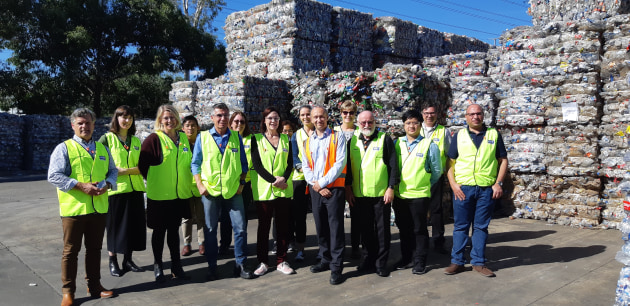Nerida Kelton, executive director of the Australian Institute of Packaging, takes a look at the many paths that lead to a career in packaging, and the value of investing in training packaging professionals. This article was first published in PKN Packaging News July/August 2020.
As David Byrne sang in Once in a Lifetime, “You may ask yourself, well, how did I get here?”
If you stop and think about how you ended up working in the packaging industry, I am confident the majority will say they started their careers in food science or technology, industrial design, or engineering, and somehow ended up designing packaging. It might have been because the boss asked for help on a packaging-related project, the packaging department held intrigue, or you were one of the lucky people who had “packaging” added to your job description. Most people do not start here.
Now ask yourself how much technical training you have undertaken in the fundamentals of packaging design. Have you been trained in the science behind designing packaging? Or, like so many, have you tried to learn on the job?
With consumers now wanting to know what brands are doing to reduce, reuse, and recycle their packaging, there is a bright spotlight on packaging technologists and designers. This means that brand owners can no longer ignore the most important role that packaging technologists and designers play within the business.
Knowledge to support sustainable outcomes
The move to sustainable and circular packaging design has also seen even more people working in, and around, packaging development and design. People that hold roles in environment and sustainability, procurement, sales, marketing, design agencies and packaging machinery also need to understand packaging at a more technical level than ever before – especially those who are responsible for achieving the 2025 National Packaging Targets for the business.
Not having the right technical packaging training and knowledge can ultimately cost companies if the packaging design or material selection is in contradiction of 2025 National Packaging and Waste Targets and true recyclability of the packs.
Starting to hire packaging professionals that are qualified, or upskilling current staff, will ensure that the people who are responsible for packaging design understand the fundamentals of packaging technology.
Shifting skillset
We must also consider that there is a monumental skillset shift currently occurring, as the qualified packaging professionals currently working in the industry are not sufficient to be able to fill the gaps that will be left behind by those set to retire.
According to the 2019 annual Salary Survey undertaken by sister association IoPP in the US, there was a large shift in the age bracket of the professionals in the industry with 55 per cent of the respondents aged 18 to 34 and a 16 per cent decrease in the numbers of people over 65. The technical packaging skills of the under 34 age bracket was minimal and limited.

Over the past few years, the AIP has seen encouraging signs from many businesses across Australia and New Zealand that they are serious about upskilling their packaging professionals. This is evident through the 25 students undertaking the Diploma in Packaging Technology degree, a high number of professionals working on their Certified Packaging Professional (CPP) designation, the uptake in enrolments in the Fundamentals of Packaging Technology bite-sized modules, the 2000 people who attended the AIP training courses in the last year, and a record 64 students undertaking the last round of the Master of Food & Packaging Innovation degree.
While these statistics are a great start, we need to see more packaging professionals undertaking these degrees and courses to improve the skillset in the industry, ensure that we have technically qualified packaging technologists and designers for the future, and to strengthen the profession and its standing globally.
The next generation of packaging professionals that we are seeing in Australasia is quite remarkable and is evident in Diploma in Packaging Technology graduates, Harry Lovell Award Winners and the Young Packaging Professional of the Year finalists and winners over the past decade.
A perfect example of the next generation is Kelly Wade, who was awarded the 2020 Young Packaging Professional of the Year award. He came to the industry with a Bachelor of Engineering in Chemical and Materials Engineering from the University of Auckland and a PhD investigating intervertebral disc nucleus microstructure and biomechanics relationships. He is now responsible for managing and operating Scion’s WHITE room where he combines his previous knowledge around intervertebral disc structure-function relationships with characteristics of paperboard products and how their structure responds to loading and the environment. Kelly Wade is someone who did not start here, but aren’t we glad he is here now?
This is a dynamic industry with so many opportunities available for a wide range of career paths, and while most people might not start here, they certainly stay until they retire.
I would encourage everyone to take stock of not only your packaging skills and knowledge gaps, but those of your team. Ask the AIP how you can build your packaging career on firm foundations.
Advanced education
Recommended skillsets for packaging technologists and designers:
- Foundation Undergraduate Degree – either in Science, Engineering, Chemistry or Industrial Design
- Diploma in Packaging Technology Degree
- Certified Packaging Professional (CPP) Designation
- Master of Food & Packaging Innovation Degree
- For people who are new to packaging roles and responsibilities
- Foundation Undergraduate Degree
- Certificate in Packaging
- Fundamentals of Packaging Technology
- AIP Training Courses
- Certified Packaging Professional in Training (CPIT) Designation
- For people employed in other roles who need to fill knowledge gaps
- Fundamentals of Packaging Technology Course
- Certificate in Packaging
- AIP Training Courses
- Certified Packaging Professional (CPP) Designation






